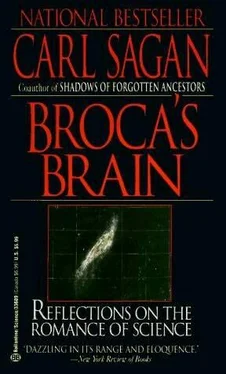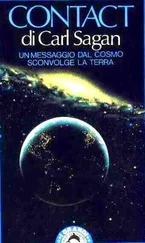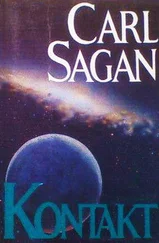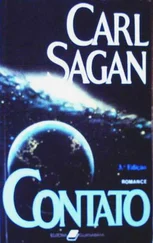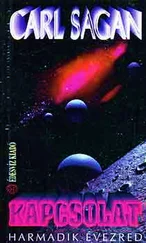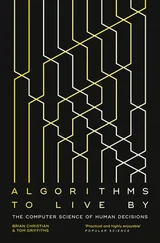Carl Sagan - Broca's Brain - The Romance of Science
Здесь есть возможность читать онлайн «Carl Sagan - Broca's Brain - The Romance of Science» весь текст электронной книги совершенно бесплатно (целиком полную версию без сокращений). В некоторых случаях можно слушать аудио, скачать через торрент в формате fb2 и присутствует краткое содержание. Жанр: Физика, на английском языке. Описание произведения, (предисловие) а так же отзывы посетителей доступны на портале библиотеки ЛибКат.
- Название:Broca's Brain: The Romance of Science
- Автор:
- Жанр:
- Год:неизвестен
- ISBN:нет данных
- Рейтинг книги:3 / 5. Голосов: 1
-
Избранное:Добавить в избранное
- Отзывы:
-
Ваша оценка:
- 60
- 1
- 2
- 3
- 4
- 5
Broca's Brain: The Romance of Science: краткое содержание, описание и аннотация
Предлагаем к чтению аннотацию, описание, краткое содержание или предисловие (зависит от того, что написал сам автор книги «Broca's Brain: The Romance of Science»). Если вы не нашли необходимую информацию о книге — напишите в комментариях, мы постараемся отыскать её.
Broca's Brain: The Romance of Science — читать онлайн бесплатно полную книгу (весь текст) целиком
Ниже представлен текст книги, разбитый по страницам. Система сохранения места последней прочитанной страницы, позволяет с удобством читать онлайн бесплатно книгу «Broca's Brain: The Romance of Science», без необходимости каждый раз заново искать на чём Вы остановились. Поставьте закладку, и сможете в любой момент перейти на страницу, на которой закончили чтение.
Интервал:
Закладка:
If the universe is not in a steady state, then it is changing, and such changing universes are described by evolutionary cosmologies. They begin in one state, and they end in another. What are the possible fates of the universe in evolutionary cosmologies? If the universe continues to expand at its present rate and galaxies continue to disappear over the event horizon, there will eventually be less and less matter in the visible universe. The distances between galaxies will increase, and there will be fewer and fewer of the spiral nebulae for the successors of Slipher, Hubbell and Humason to view. Eventually the distance from our Galaxy to the nearest galaxy will exceed the distance to the event horizon, and astronomers will no longer be able to see even the nearest galaxy except in (very) old books and photographs. Because of the gravity that holds the stars in our Galaxy together, the expanding universe will not dissipate our Galaxy, but even here a strange and desolate fate awaits us. For one thing, the stars are evolving, and in tens or hundreds of billions of years most present stars will have become small and dark dwarf stars. The remainder will have collapsed to neutron stars or black holes. No new matter will be available for a vigorous younger generation of stars. The Sun, the stars, the entire Milky Way Galaxy, will slowly turn off. The lights in the night sky will go out.
But in such a universe there is a further evolution still. We are used to the idea of radioactive elements, certain kinds of atoms that spontaneously decay or fall to pieces. Ordinary uranium is one example. But we are less familiar with the idea that every atom except iron is radioactive, given a long enough period of time. Even the most stable atoms will radioactively decay, emit alpha and other particles, and fall to pieces, leaving only iron, if we wait long enough. How long? The American physicist Freeman Dyson of the Institute for Advanced Study calculates that the half-life of iron is about 10 500years, a one followed by five hundred zeros-a number so large that it would take a dedicated numerologist the better part of ten minutes just to write it down. So if we wait just a little longer-10 600years would do just fine-not only would the stars have gone out, but all the matter in the universe not in neutron stars or black holes would have decayed into the ultimate nuclear dust. Eventually, galaxies will have vanished altogether. Suns will have blackened, matter disintegrated, and no conceivable possibility will remain for the survival of life or intelligence or civilizations-a cold and dark and desolate death of the universe.
But need the universe expand forever? If I stand on a small asteroid and throw a rock up, it will leave the asteroid, there being on such a worldlet not enough gravity to drag the rock back. If I throw the same rock at the same speed from the surface of the Earth, it will of course turn around and fall down because of the substantial gravity of our planet. But the same sort of physics applies to the universe as a whole. If there is less than a certain amount of matter, each galaxy will feel an insufficient tug from the gravitational attraction of the others to be slowed down appreciably, and the expansion of the universe will continue forever. On the other hand, if there is more than a certain critical mass, the expansion will eventually slow, and we will be saved from the desolation teleology of a universe that expands forever.
What, then, would be the fate of the universe? Why, then an observer would see expansion eventually replaced by contraction, the galaxies slowly and then at an ever-increasing pace approaching one another, a careening, devastating smashing together of galaxies, worlds, life, civilizations and matter until every structure in the universe is utterly destroyed and all the matter in the cosmos converted into energy: instead of a universe ending in cold and tenuous desolation, a universe finishing in a hot and dense fireball. It is very likely that such a fireball would rebound, leading to a new expansion of the universe and, if the laws of nature remain the same, a new incarnation of matter, a new set of condensations of galaxies and stars and planets, a new evolution of life and intelligence. But information from our universe would not trickle into that next one and, from our vantage point, such an oscillating cosmology is as definitive and depressing an end as the expansion that never stops.
The distinction between a Big Bang with expansion forever and an Oscillating Universe clearly turns on the amount of matter there is. If the critical amount of matter is exceeded, we live in an Oscillating Universe. Otherwise we live in one that expands forever. The expansion times-measured in tens of billions of years-are so long that these cosmological issues do not affect any immediate human concerns. But they are of the most profound import for our view of the nature and fate of the universe and-only a little more remotely-of ourselves.
In a remarkable scientific paper published in the December 15, 1974 issue of the Astrophysical Journal , a wide range of observational evidence is brought to bear on the question of whether the universe will continue to expand forever (an “open” universe) or whether it will gradually slow down and recontract (a “closed” universe), perhaps as part of an infinite series of oscillations. The work is by J. Richard Gott III and James E. Gunn, then both of the California Institute of Technology, and David N. Schramm and Beatrice M. Tinsely, then of the University of Texas. In one of their arguments they review calculations of the amount of mass in and between galaxies in “nearby” well-observed regions of space and extrapolate to the rest of the universe: they find that there is not enough matter to slow the expansion down.
Ordinary hydrogen has a nucleus comprising a single proton. Heavy hydrogen, called deuterium, has a nucleus comprising one proton and one neutron. An astronomical telescope in Earth orbit called “Copernicus” has measured, for the first time, the amount of deuterium between the stars. Deuterium must have been made in the Big Bang in an amount that depends on the early density of the universe. The early density of the universe is connected with the present density of the universe. The amount of deuterium found by “Copernicus” implies a value to the early density of the universe and suggests that the present density is insufficient to prevent the universe from expanding forever. [22]And what is said to be the best value of the Hubbell constant-which specifies how much faster more distant galaxies are receding from us than nearby ones-is consistent with this whole story.
Gott and his colleagues stressed that there may be loopholes in their argument, that it may be possible to hide intergalactic matter in ways which we could not then detect. Evidence for such missing mass has now begun to emerge. The High Energy Astronomical Observatories (HEAO) are a set of satellites orbiting the Earth and scanning the universe for particles and radiation that we cannot detect down here, under our thick blanket of air. Satellites of this sort have detected intense emission of X-rays from clusters of galaxies, from intergalactic spaces where there was hitherto no hint of any matter. Extremely hot gas between the galaxies would be invisible to other experimental methods and therefore missed in the inventory of cosmic matter made by Gott and his colleagues. What is more, ground-based radio astronomical studies with the Arecibo Observatory in Puerto Rico have shown that the matter in galaxies extends far beyond the optical light from the apparent edges of galaxies. When we look at a photograph of a galaxy, we see an edge or periphery beyond which there is no apparent luminous matter. But the Arecibo radio telescope has found that the matter fades off extremely slowly and that there is substantial dark matter in the peripheries and exteriors of galaxies, which had been missed by previous surveys.
Читать дальшеИнтервал:
Закладка:
Похожие книги на «Broca's Brain: The Romance of Science»
Представляем Вашему вниманию похожие книги на «Broca's Brain: The Romance of Science» списком для выбора. Мы отобрали схожую по названию и смыслу литературу в надежде предоставить читателям больше вариантов отыскать новые, интересные, ещё непрочитанные произведения.
Обсуждение, отзывы о книге «Broca's Brain: The Romance of Science» и просто собственные мнения читателей. Оставьте ваши комментарии, напишите, что Вы думаете о произведении, его смысле или главных героях. Укажите что конкретно понравилось, а что нет, и почему Вы так считаете.
